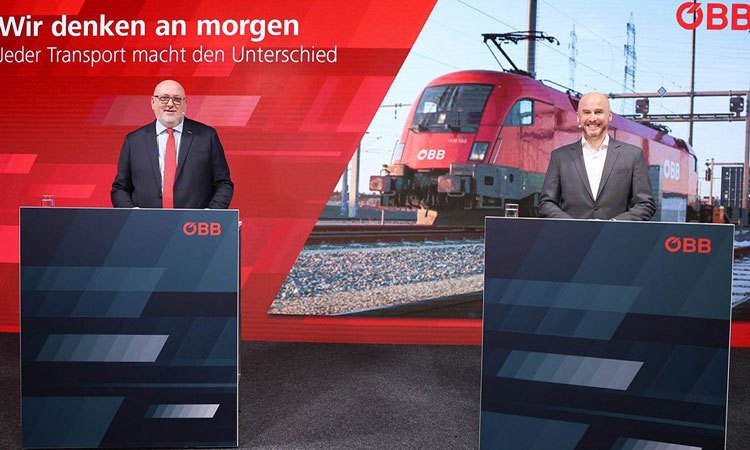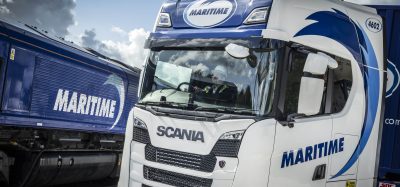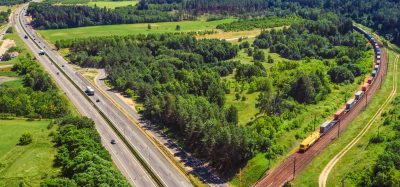ÖBB RCG highlights network expansion plans to shift more freight to rail
Posted: 21 November 2022 | Global Railway Review | No comments yet
ÖBB Rail Cargo Group reveals plans for more rail transportation through the duty-free corridor from the port of Trieste to the Dry Port Villach, and investments in increasing waste transports by rail and new subsidiaries in China and Serbia.
At the ÖBB Rail Cargo Group (RCG) annual press conference (21 November 2022), ÖBB CEO, Andreas Matthä, and Clemens Först, Spokesman of the Board for the ÖBB RCG, presented RCG’s expansion plans in light of the many challenges facing rail freight transport in Europe.
Rail freight transport has had an extraordinarily crisis-ridden year – from drastically increased energy prices, the Ukraine war, the continuing COVID-19 pandemic and securing fuel supplies in Austria to dealing with international supply chain problems. Rail freight transport is critical for both the system and the supply.
Andreas said: “This year again, rail freight transport – and especially the ÖBB RFC with its employees – has proven how reliable rail transport is and relevant it is for the system and supply. I am particularly pleased that we can support the people and the economy in Ukraine with our services. Right now we are transporting the millionth tonne of grain from Ukraine out into the world. This makes us one of the leading railway companies providing assistance here.”
Investments for climate-friendly waste transport
As the market leader in Austria, RCG is pushing ahead with other relevant projects.
“We are preparing intensively for the changes in the Waste Management Act starting in January 2023 with investments of €75 million in new wagon material,” explained Andreas. “Based on this, we will then be able to shift more and more waste transports from road to rail.”
Moreover, the world’s first duty-free corridor from the port of Trieste to Dry Port Villach will steer additional road transports to the railways. Andreas continued: “This project is of great importance to us – Villach will be located by the sea in the future and will become the gateway for goods from all over the world to enter the EU. And they will be coming by rail. On the whole, all our measures are geared towards making our significant contribution to achieving the climate targets. The comparison demonstrates this: transporting one tonne of freight by rail is 30 times more climate-friendly than by truck.”


ÖBB CEO Andreas Matthä and ÖBB RCG Board Spokesman Clemens Först. Credit: ÖBB/Andreas Scheiblecker
“Systemic relevance is the buzzword of the year,” stated Clemens. “We are the sustainable logistics backbone of the Austrian and European economy and are investing intensively in the expansion of our network – in the direction of China and increasingly in the Balkans: On 1 January 2023, we will be operational with a branch office in Shanghai. Particularly the transport route in the Middle Corridor is to be expanded further as well. In Belgrade, we have also established another carrier company with a start date in the first quarter of 2023. Serbia will thus be the 13th country in Europe where we carry out high-quality and attractively priced rail transports with our own locomotives and personnel. This step enables us to offer our TransFER connections heading for Turkey and Greece – where we are the market leader – via two alternative routes and become more crisis-resistant as a result.”
Due to the volatile energy prices in Europe, however, the next year will also see a significant increase in prices for RCG customers, as Clemens also stressed: “As an energy-intensive company, we too are affected by massive price jumps on the energy market and therefore have to pass on our additional costs to our customers – this step is unavoidable in light of the current developments coupled with a traditionally low-margin industry, but it is being taken transparently and fairly in coordination with each and every one of our customers.”
Improving competitive conditions
Andreas also emphasises the railways’ need for fair framework conditions: “Rail freight transport is the basic prerequisite for achieving climate protection goals. To achieve the necessary turnaround, however, we need fair cost transparency in the transport sector. In Austria alone, external costs (including noise, congestion and accident costs) are three times higher for trucks than for rail. Yet these costs are not borne by the polluters, but by the taxpayers. Something urgently needs to change here – not only for those paying, but also for the railways and thus for the climate.”
Related content you will enjoy:
ÖBB RCG strengthen Ukraine ties with transport of grain
ÖBB achieves impressive ESG sustainability ratings
ÖBB Rail Cargo Group to expand its network connections to Turkey








